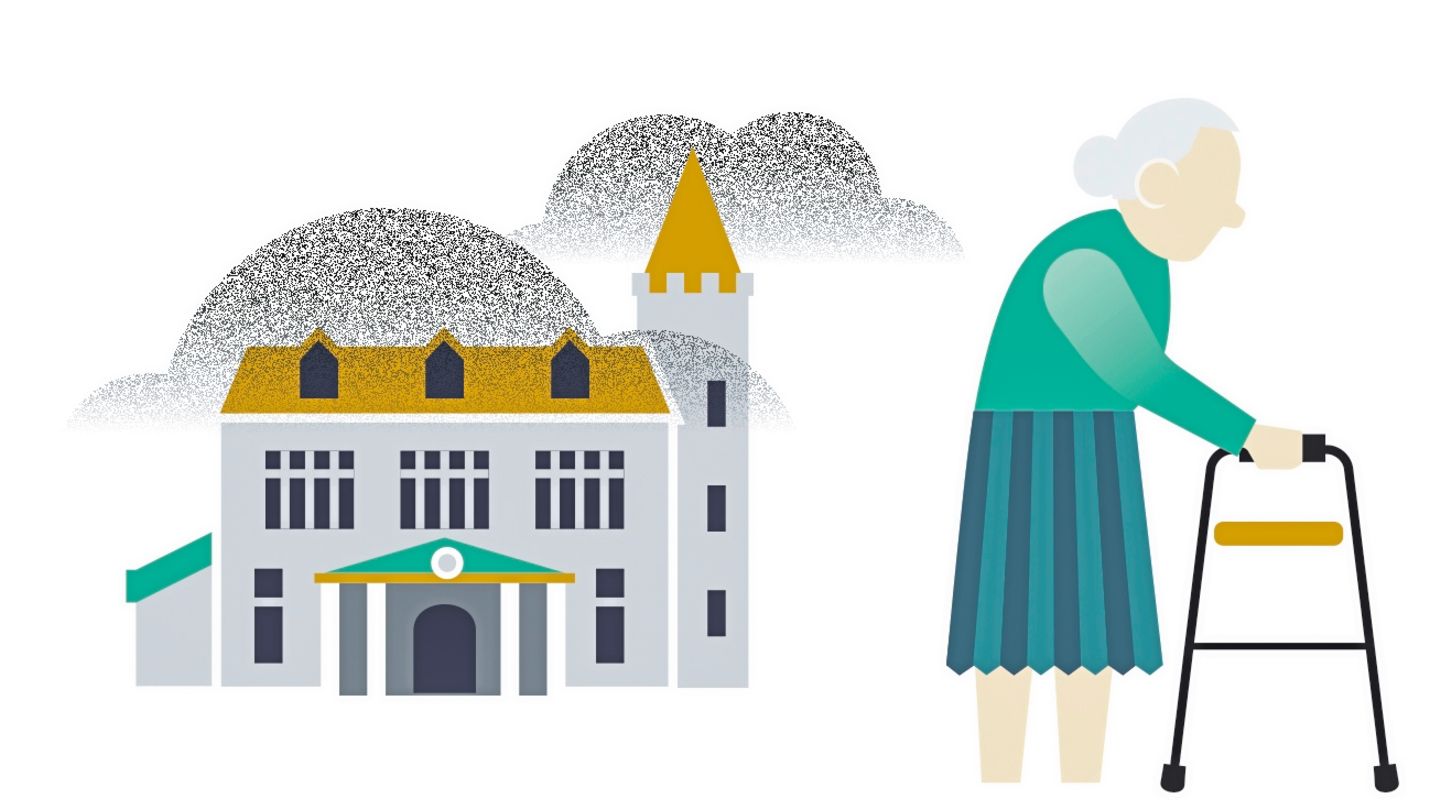Social reforms
Pension, care, citizens’ benefit: What the federal government is planning
Copy the current link
Add to the memorial list
The black and red coalition has not only made large social reforms in the pension-and founded several working groups and commissions. The overview.
The German social system threatens collapse – a sentence like from the apocalypse. Unfortunately, he is not a fiction, but maybe a reality soon. The number of pensioners increases, the number of employed people drops. The deficits in health, pension and long-term care funds must be compensated for with tax money. In addition, there are increasing expenses for social benefits such as citizens’ money. Around 190 billion euros – almost 40 percent of the federal budget – flow into the social system this year alone.
To prevent the collapse, the coalition has made major reforms – and delegated into several commissions. At the beginning of the week, the great “welfare council commission” of the Federal Social Minister came together for the first time, and further on the future of pension or care should already follow or advise. A guide through the political problem areas:
Citizens’ allowance
The problem: In 2024 expenses for the citizens’ allowance rose to almost 47 billion euros. Three billion euros more are planned for this year. Almost half of the more than five million recipients are foreign citizens. The proportion of refugees is around 30 percent.
The way: Instead of civil allowance, a “basic security for job seekers” is planned. Anyone who refuses to work or violates duties should be punished faster and harder. It is disputed whether cash benefits can be completely deleted. The Federal Constitutional Court classified this in 2019 as unconstitutional.
Schedule: According to plans by the SPD Minister of Labor and Social Affairs, Bärbel BAS, Ukrainian refugees who came to Germany after April 1, 2025 will no longer receive citizens’ money, but for the time being only similarly similar services such as asylum seekers. In September, BAS plans to submit a draft law to reform the civil allowance that could come into force a year later. Even CDU general secretary Carsten Linnemann says: “Quality goes with speed.”
pension
Problem: The pension cannot be financed solely from the articles. The grants add up to more than 122 billion euros in 2025. This is also due to the fact that the “sustainability factor” was suspended in 2018. Since then, the pension level has been set at at least 48 percent of the average wage. It should remain until 2031. The pension at 63 is also retained, the mother’s pension, the favorite project of the CSU, is also said to increase.
Away: The Federal Government does not want to use a pension commission until 2026 to develop proposals for stabilizing the pension. The Federal Ministry of Labor under the SPD chairman Bärbel Bas is also leading. The suggestions range from the reintroduction of the sustainability factor to the abolition of the pension with 63 to the extension of the working life.
Schedule: The Commission should submit results by mid -2027. Reforms could be decided before the 2029 Bundestag election. The only thing that seems to be certain is that the contribution rate should increase from 18.6 to 18.8 percent in 2027. Is that enough?
Care
Problem: The annual costs of long -term care insurance have increased from four to around 60 billion euros 30 years ago. The contributions climbed from 1.0 to 3.6 percent (plus 0.6 percent surcharge for childless) – and yet they do not cover the expenses. Last year, the deficit was 1.54 billion euros. By 2029, the gap could increase to more than twelve billion. At the same time, people in need of care have to pay more and more for a place. Most recently, an average of around 3100 euros per month was due.
Away: A federal-state working group has been meeting for nursing reform since July, supported by two specialist working groups. The health insurance companies, for example, demand that the federal government take over the pension contributions for caring relatives. The federal government is also to pay for the pandeme -related additional costs of five billion euros. Stronger digitization, better care provision and – of course – the reduction of bureaucracy are required.
Goal: By December, cornerstones for a nursing reform are to be developed.
Health
Problem: The cost of the health system is expected to increase in the record of more than 340 billion euros in 2025. The expected deficit is 47 billion. The federal government therefore shoots at least 14.5 billion euros per year. Employees also have to pay more and more. In addition to the base rate of 14.6 percent, the additional contribution rose to almost three percent on average. In addition, there are growing structural deficits: there is a lack of nursing staff, specialist and general practitioners.
Away: The hospital reform was launched by the traffic light. Hospitals should specialize and close inefficient clinics. There is a 50 billion fund for the transformation. The electronic patient file is also introduced. The current coalition now wants to reduce “the number of non -needed doctor’s contacts”.
Schedule: From 2027, the new clinic financing system will be tested and sharpened from 2028. A basic health care reform is not planned.
Debt brake
Problem: The debt brake limits new debt to 0.35 percent of gross domestic product. The state can only make more debts in the event of an economic crisis or in emergencies. The old Bundestag has lifted this rule for military spending. He also approved special credit of 500 billion euros for investments. The SPD is not enough, it requires a fundamental reform.
Away: The coalition agreement states: A commission should develop a proposal to modernize the brake, “that permanently enables additional investments in strengthening our country.”
Schedule: The Union and SPD actually agreed to change the Basic Law again by the end of the year. But the schedule cannot be kept. This is not only due to the Union, which sees no change of change, but also because of the lack of two-thirds majority. In order not to be dependent on votes from the AfD, the Greens and the left must be convinced.
And otherwise?
Compulsory military: The Bundeswehr has to grow. A new military service law should help. If the target size is not fulfilled on a voluntary basis, the return of conscription could be imminent. Parts of the Union want to go back faster.
Tax reform: The investment booster has been decided to reduce corporate tax (gradually) and VAT in the catering trade, but the coalition continues to argue. The coalition agreement says: “We will reduce income tax for small and medium -sized incomes to the middle of the legislature.” For this, the SPD wants to burden top earners and high fortune more, the Union: not.
State reform: In summer, a commission on state reform presented its final report. It comprises 35 suggestions. By December, the federal and state governments are to present a binding agenda, which should be implemented by when, where and how.
Source: Stern
I have been working in the news industry for over 6 years, first as a reporter and now as an editor. I have covered politics extensively, and my work has appeared in major newspapers and online news outlets around the world. In addition to my writing, I also contribute regularly to 24 Hours World.





